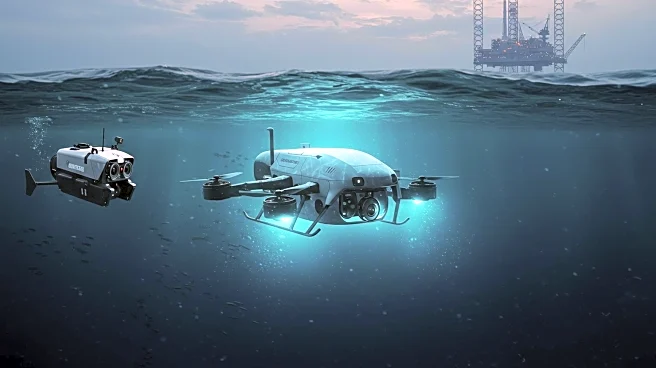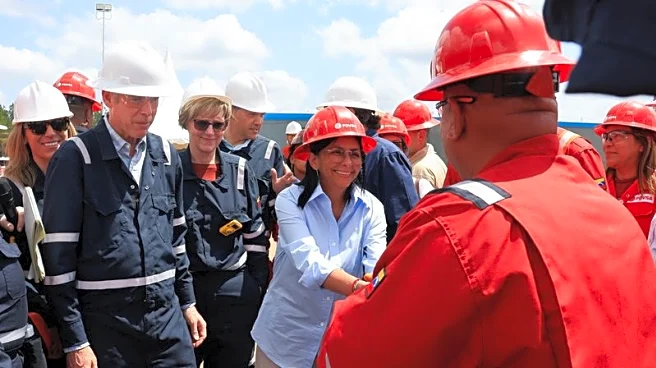What's Happening?
In 2025, the U.S. offshore exploration sector is experiencing a resurgence, driven by advancements in floating production units (FPUs) and carbon capture technologies. The American Bureau of Shipping (ABS) is playing a crucial role in ensuring operational safety and environmental protection as new technologies are integrated into offshore operations. The U.S. Gulf is witnessing a revival in exploration activities, with 12 new fields and facilities set to begin production. This growth is supported by an energy-friendly regulatory regime, highlighting the region's significance in the global offshore landscape. Innovative FPUs, such as the all-electric Anchor FPU for Chevron's deepwater development, are being deployed, showcasing the industry's commitment to reducing emissions and enhancing sustainability.
Why It's Important?
The revitalization of offshore exploration in the U.S. is significant for several reasons. It underscores the country's strategic role in the global energy market, particularly as it seeks to diversify its energy portfolio with natural gas solutions. The deployment of advanced FPUs and the integration of carbon capture technologies are crucial for reducing environmental impact and enhancing operational efficiency. This development is likely to benefit the U.S. economy by creating jobs and boosting energy production. Additionally, the focus on sustainability and safety standards reflects a broader industry trend towards responsible energy production, which is essential for meeting future energy demands while minimizing ecological footprints.
What's Next?
As offshore exploration activities continue to expand, stakeholders can expect further advancements in technology and regulatory frameworks. The U.S. is likely to see increased investment in LNG infrastructure, with projects aimed at doubling export capacity by 2028. The integration of digital solutions, such as predictive maintenance and digital twins, will play a pivotal role in optimizing operations and extending asset life cycles. These developments may prompt further collaboration between industry leaders and regulatory bodies to ensure safety and environmental standards are upheld. The ongoing transformation of the offshore sector will likely drive innovation and set new benchmarks for operational efficiency and sustainability.
Beyond the Headlines
The resurgence in offshore exploration is not just about technological advancements; it also reflects a shift in industry priorities towards sustainability and environmental stewardship. The integration of carbon capture technologies and digital solutions signifies a move towards more responsible energy production. This shift may influence global energy policies and encourage other regions to adopt similar practices. The focus on safety and sustainability could lead to long-term changes in how offshore operations are conducted, potentially setting new industry standards and fostering a culture of innovation and environmental responsibility.










